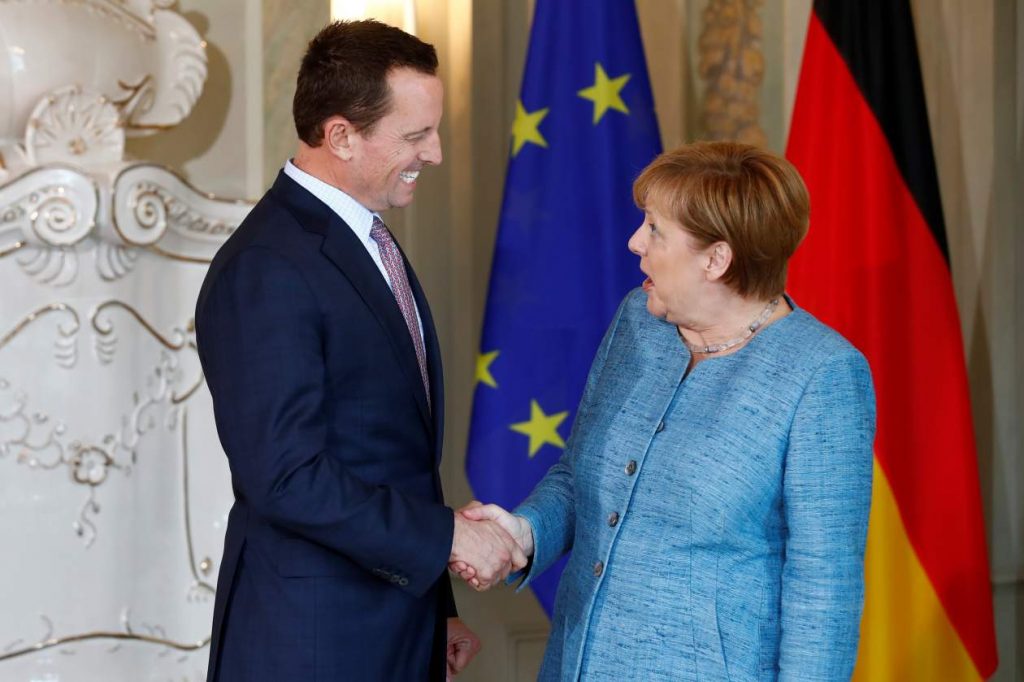
The Presidents of Kosovo and Serbia have already agreed on a land swap deal, and the next two months will be crucial for US envoy Richard Grenell to persuade the EU to accept their plan, according to James Hooper, a former diplomat in the Department of State.
In an interview for the Voice of America in Serbian, Hooper praised the vision for peace of Presidents Hashim Thaci of Kosovo and Aleksandar Vucic of Serbia.
“Vucic and Thaci have consistently demonstrated a sophisticated approach to resolving negotiation issues as well as addressing issues that have long plagued peacekeepers,” he said.
Hooper explained that the deal between the two presidents includes “a territorial component”, which is a condition by Serbia. Vucic has found it easier to agree with Thaci than trying to persuade German Chancellor Angela Merkel on the merits of territorial exchange. Now it is Grenell’s task to convince the EU and Merkel on a plan that has been already agreed by the two presidents.
“It seems easier for Vucic to agree with Thaci than to persuade German Chancellor Angela Merkel to accept their agreement,” Hooper said. “It is up to Grenell to help dispel the unwillingness of the European Union, which vetoes an agreement that includes a territorial component. Serbia insists that a comprehensive agreement must include territorial elements. Serbia further insists on EU membership as the outcome of a comprehensive settlement,” he added.
Grenell has to use the next two months until the June 28 elections in Serbia and while the political crisis in Kosovo is resolved, to convince the EU on the Vucic-Thaci plan.
“In the meantime, Grenell has at least May and June, during which he could work to get the EU to adjust its position to the way Vucic and Thaci think. Unless the US Special Envoy succeeds in persuading the EU to accept an agreement that has already been negotiated, the current favorable opportunity to end the confrontation between Serbia and Kosovo will be extinguished,” he claimed.
Hooper further argued that through their land swap plan, Vucic and Thaci have laid the basis for “completely new relations” between Serbia and Kosovo.
By not accepting exchange of territories, the EU is showing its inability to abandon its “provincial approach” toward the Balkans. It has now become Grenell’s task to push the EU and Merkel in particular to change this approach.
“Vucic and Thaci have consistently demonstrated a sophisticated approach to resolving negotiation issues as well as addressing issues that have long plagued peacekeepers. The task of the US is to persuade the German-led Union to join a new way of thinking about the Balkans and to abandon the provincial approach, which fundamentally threatens the successful peace approach adopted by both Vucic and Thaci.”
Hooper thinks that there is no need for a mutual confidence-building process between the two countries before a comprehensive agreement, as they have already accepted comprehensive agreements before. He didn’t clarify what these agreements were.
He argued that the EU should accept a Kosovo-Serbia deal that “must include a territorial component”, as the last chance for reconciliation. It should also make sure the Serbia gets an accelerated and unhindered EU membership.
“The best step for the EU is to support the agreement, offer an accelerated membership process for Serbia, and ensure that Croatia does not block Belgrade’s serious and well-intentioned efforts to meet Brussels’ requirements for each chapter on European bloc membership,” James Hooper concluded.

